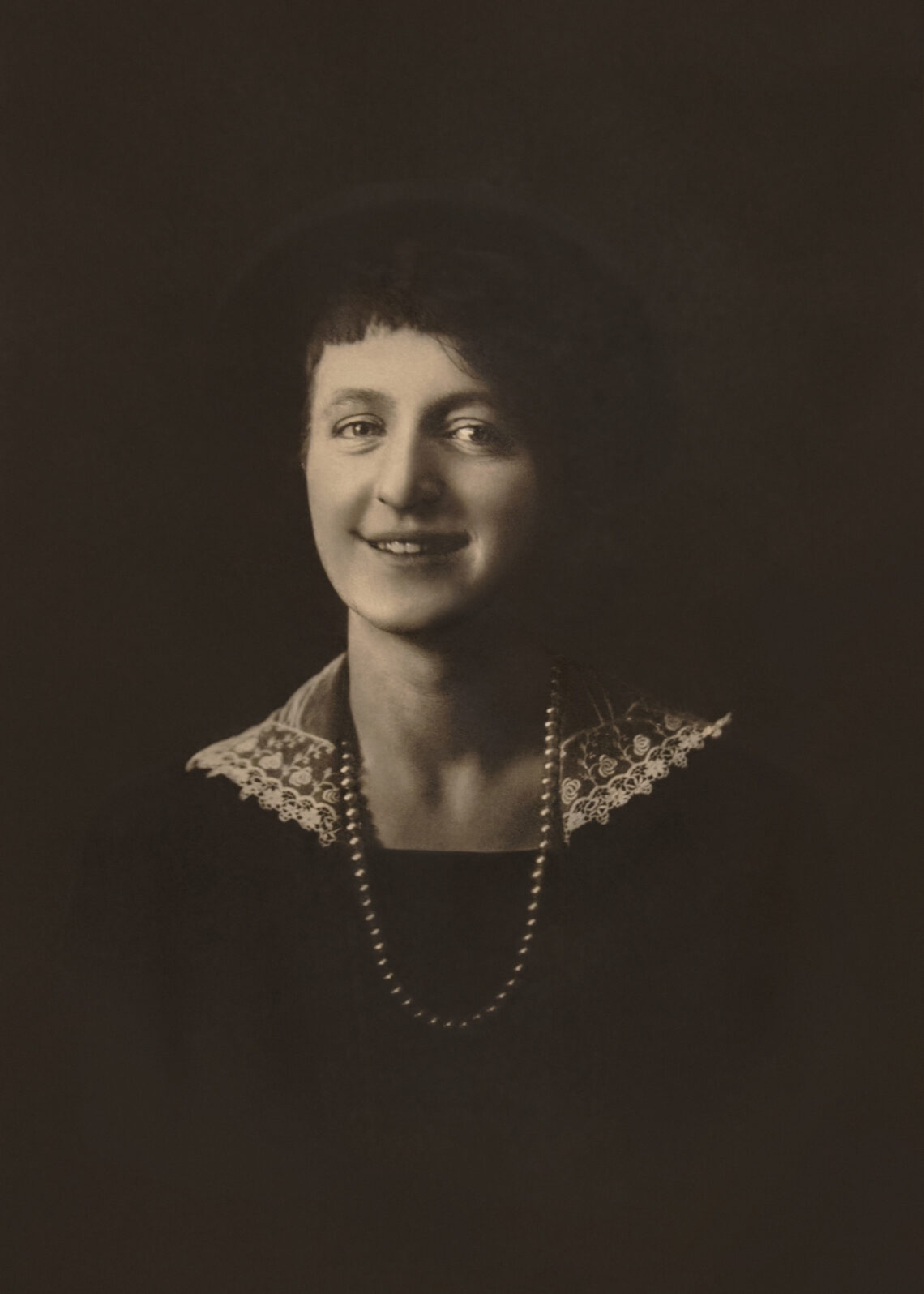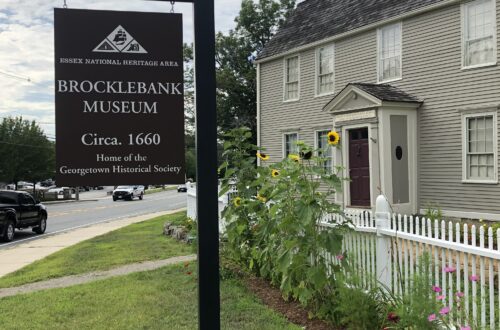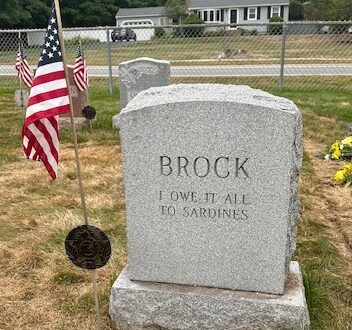In a cemetery in Danvers, Massachusetts there is a tombstone that bears the name of my grandfather, Herbert. Etched on the line underneath him is listed my grandmother, Alice as “his wife”. This is an old-fashioned tradition that dates back centuries, but I take great issue with listing my spunky grandmother in this secondary position, as if her identity was wrapped up in servitude to her husband, because their partnership was nothing of the kind.
Although I cannot re-engrave the tombstone, allow me to set the record straight.
Alice Marie Gaumont was born in Lowell, Massachusetts on March 24, 1903. She and her younger sister were the only ones in the family born in the United States, the rest of the family having immigrated from Quebec. She had a somewhat privileged middle-class upbringing, as evidenced from the many studio portraits my mother and I found in her attic. She grew up in a loving home with her parents, Edwin and Anna, and siblings Leo, Albert and Ida.
Alice married her husband Herbert in 1925. He came from the wealthy town of Marblehead but was illegitimate, and somehow this didn’t matter to the Gaumonts. He was tall and handsome, and earned a good living. They made an odd couple, as Alice was only a little over 5’ tall. The newlyweds settled in Salem and my uncle Robert was born in 1927.
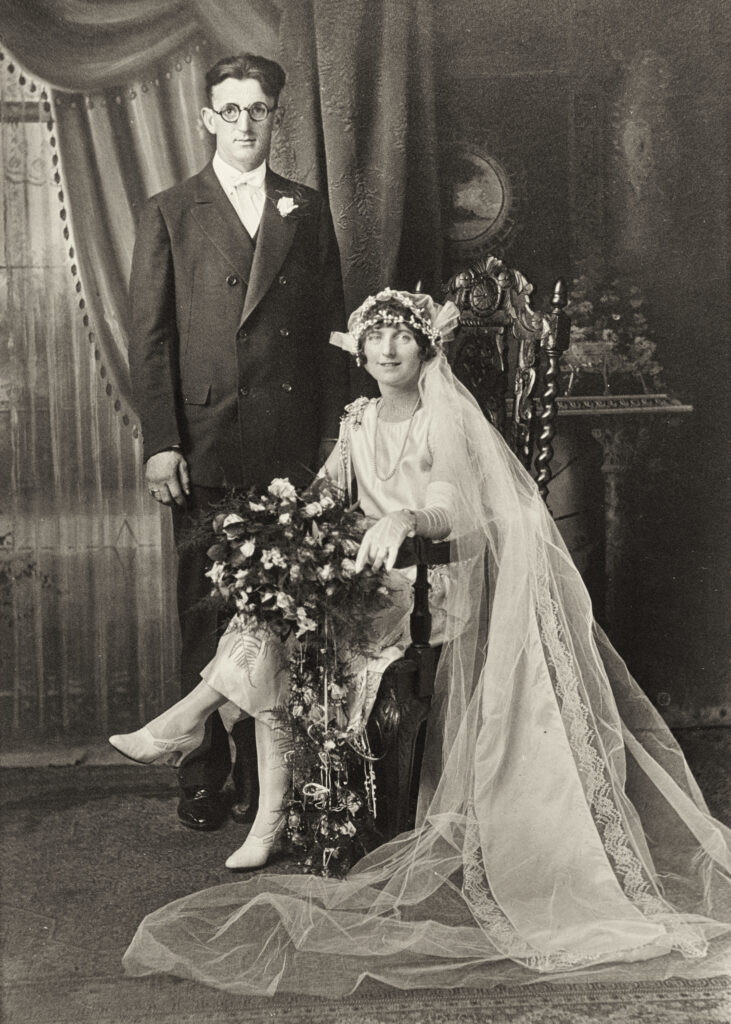
My grandmother might have been one of the first house-flippers. Their first home was small, and a bit shoddy when they moved in. During their first years of marriage Alice slowly remade the house, restoring woodwork and painting walls. They lived there for a while, but then their family began to expand. They sold the first house for a profit, and then moved into a second, slightly bigger house in Salem where Alice proceeded to do exactly the same thing. Then they found what my mother called “the dream house” – their final and third home in Danvers. My grandmother was ambitious when it came to having the best for her family.
Her son Robert was a soldier during WWII (I recall hearing stories of how his birth date was slightly altered so he could enlist a little earlier – this was sanctioned by his parents.) Whenever he came home on leave, Alice insisted that he put on his dress-whites to go visiting with her. She was so proud of him. Like most people born during this era, appearances were extremely important to her. She would even put on her nice coat and high heels to take out the trash barrel.
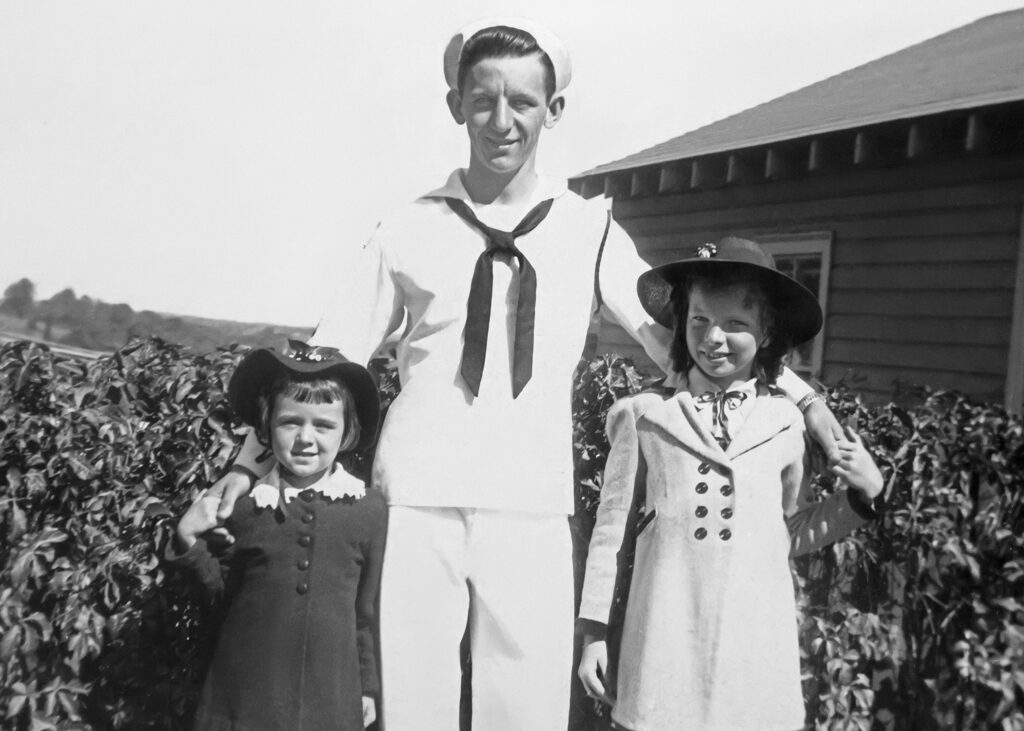
She kept a parakeet with quite a vocabulary, and I remember one story in particular. When she saw my grandfather coming home from work, she would whisper to the bird. When my Papa entered his home, he would be greeted with a falsetto voice announcing, “Herbie – you’re late!” regardless of whether he was on time or not. Alice was mischievous, and she knew how to get her husband’s attention. When she was really mad at Herbie she bought a hat. And, on one legendary occasion, she with my teen-aged mother hopped on a train and went to New York City to see the taping of a soap opera (in order to make a point and exact her full wrath).
As tough as she was with her “white-glove” tests to see whether housework was done properly, she could sometimes act in a completely unexpected way – outside the norm of a lady born during the Edwardian era. I love that about her, and it certainly explains a great deal of my mother’s personality.
Every Saturday night she would have her sister Ida, and sisters-in-law Ellen and Bertha over to play cards. If they didn’t want us grandchildren to know what they were saying, they would speak French. It was a slightly mysterious, private club in her kitchen, shielded by the veil of language. We knew not to bother them.
With each birthday milestone we asked her, “Memere, are you old now?” When she turned 70 she said, “No, I’ll be old when I’m 80!” When she turned 80, we asked her the same thing. When she turned 90, we repeated the question. She lived to be 94.
And while she was certainly Herbert’s wife, even more importantly he was:
